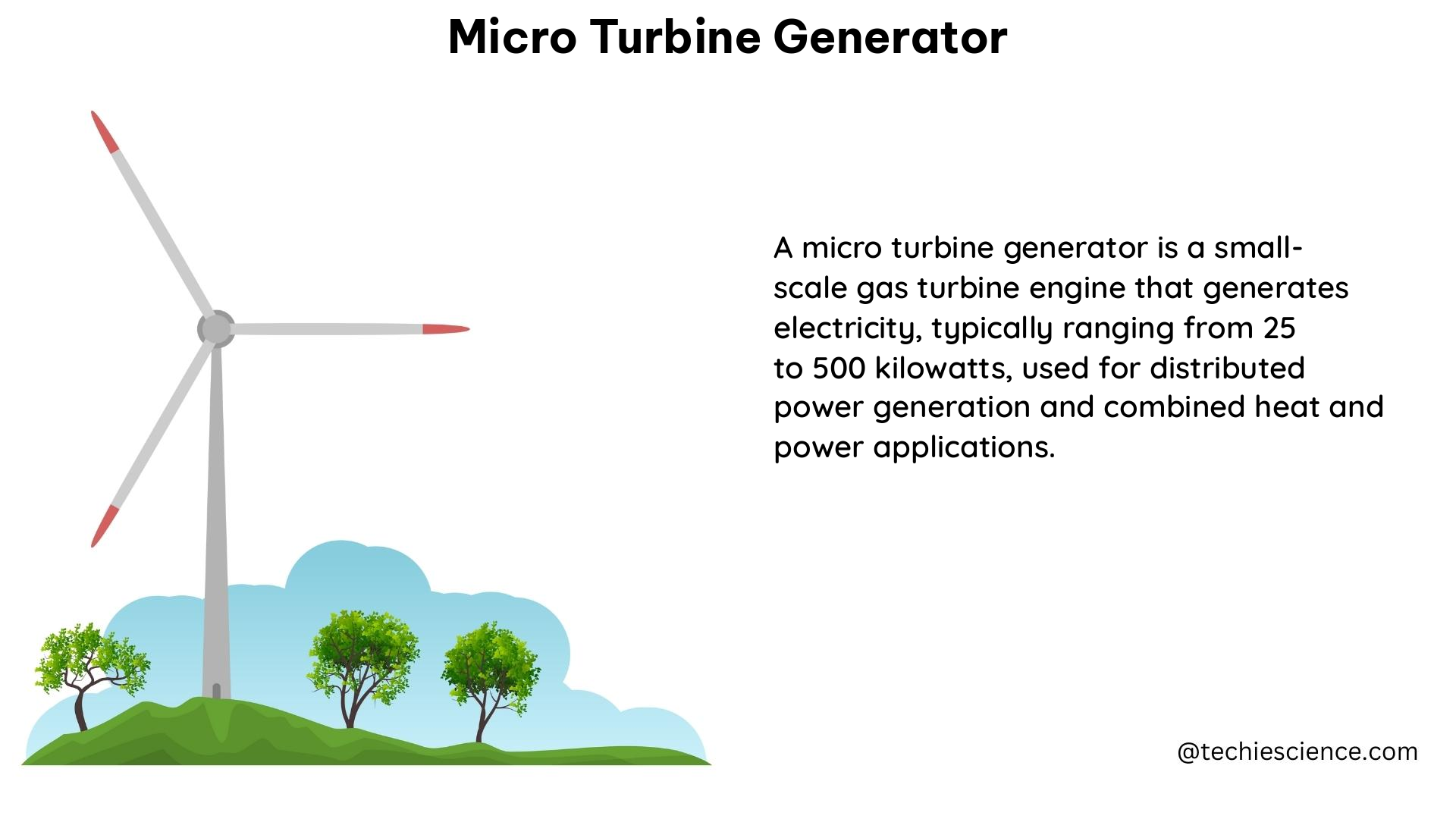Micro turbine generators are highly efficient power generation systems that operate on the Brayton Cycle, similar to larger gas turbines. These compact and lightweight units typically have an electrical output ranging from 30 to 330 kW, making them ideal for distributed generation applications. One of the standout features of micro turbine generators is their high rotational speeds, which can reach up to 60,000 revolutions per minute.
Capstone C370: A Cutting-Edge Micro Turbine Generator
The Capstone C370 micro turbine generator is a prime example of the advanced technology in this field. This model utilizes a two-shaft high-efficiency turbine design, consisting of a dual-property, high-temperature turbine, high-pressure compressors with a compression ratio of 11:1, a recuperator, dual generators, a high-temperature, low-emissions combustor, and an inter-stage compressor cooling system. The C370 model is expected to produce a remarkable 370 kW of electrical output.
Advantages of Micro Turbine Generators

Micro turbine generators offer several distinct advantages over traditional power generation systems:
- Flexibility in Connection Methods: These units are highly flexible in their connection methods, making them suitable for a wide range of applications.
- Parallel Stacking Capability: Micro turbine generators can be stacked in parallel to serve larger loads, providing stable and reliable power.
- Low Emissions: Compared to reciprocating engines, micro turbine generators have significantly lower emissions, making them an environmentally friendly power generation option.
Technical Specifications
Micro turbine generators are designed with several unique technical specifications:
High Rotational Speeds
Micro turbine generators typically operate at high rotational speeds, with some models reaching up to 60,000 revolutions per minute. This high-speed operation is enabled by their compact and lightweight design.
Single-Stage Radial Flow Compressors and Turbines
Unlike larger turbines that use multi-stage axial flow designs, micro turbine generators employ single-stage radial flow compressors and turbines. This unique design allows for high efficiency and low emissions.
Power Conditioning Unit
The power conditioning unit is a critical component in micro turbine generator design, as it matches the turbine output to the required load. This component represents significant design challenges but is essential for efficient and reliable power generation.
Combined Heat and Power (CHP) Capabilities
Micro turbine generators are well-suited for CHP applications, as they can extract remaining energy from the turbine exhaust. This allows for more efficient use of fuel and increased overall system efficiency.
Technical Specifications Comparison
To provide a more comprehensive understanding, let’s compare the technical specifications of two popular micro turbine generator models:
| Specification | Capstone C30 | Capstone C65 |
|---|---|---|
| Electrical Output | 30 kW | 65 kW |
| Rotational Speed | 96,000 RPM | 96,000 RPM |
| Compression Ratio | 4.5:1 | 4.5:1 |
| Turbine Inlet Temperature | 1,800°F (982°C) | 1,800°F (982°C) |
| Exhaust Temperature | 550°F (288°C) | 550°F (288°C) |
| Dimensions (L x W x H) | 67 x 30 x 78 in (170 x 76 x 198 cm) | 87 x 40 x 88 in (221 x 102 x 224 cm) |
| Weight | 1,900 lbs (862 kg) | 3,000 lbs (1,361 kg) |
As you can see, the Capstone C65 model offers a higher electrical output of 65 kW compared to the 30 kW of the Capstone C30, while maintaining similar high-speed operation and other technical specifications.
Conclusion
Micro turbine generators are highly efficient, flexible, and environmentally friendly power generation systems that offer several advantages over traditional power generation methods. With their compact design, high rotational speeds, and advanced technical specifications, these units are well-suited for a wide range of distributed generation applications. As the technology continues to evolve, micro turbine generators are poised to play an increasingly important role in the future of sustainable power generation.
References:
- EE1285-Microturbine Generators – EZ-pdh.com
- A Holistic Methodology to Quantify Product Competitiveness and Define Innovation Requirements for Micro Gas Turbine Systems in Hydrogen-Based Energy Storage
- Award # 1256632 – SBIR Phase II: A Novel 10 kW Micro-turbine for Distributed Generation Applications
- Project title: micro turbine generator program – ResearchGate
- Technical and economic performance analysis for a microturbine in combined heat and power generation

The lambdageeks.com Core SME Team is a group of experienced subject matter experts from diverse scientific and technical fields including Physics, Chemistry, Technology,Electronics & Electrical Engineering, Automotive, Mechanical Engineering. Our team collaborates to create high-quality, well-researched articles on a wide range of science and technology topics for the lambdageeks.com website.
All Our Senior SME are having more than 7 Years of experience in the respective fields . They are either Working Industry Professionals or assocaited With different Universities. Refer Our Authors Page to get to know About our Core SMEs.